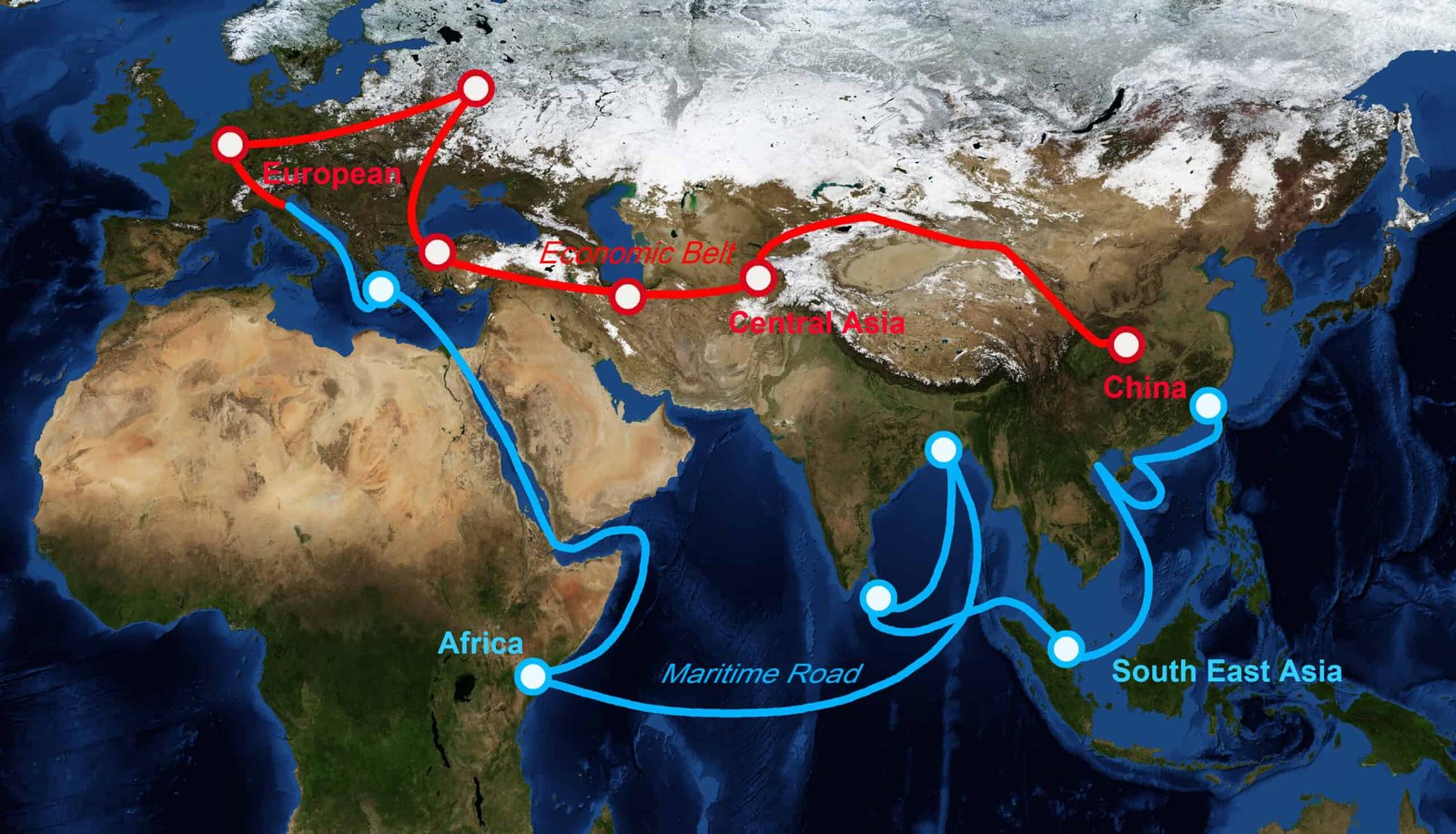A Starter Guide to Expanding Your Small or Medium Business to China
-1024x576-1.png)
Companies of all sizes in every industry have been flocking to China in recent years. Home to one-sixth of the global population coupled with consistent economic growth has created business opportunities unlike anywhere else in the world.
But expanding your business to China is a big undertaking. Some companies take off, while others struggle to even get started. The small and medium-sized companies that successfully expand to China work to understand the country and develop a plan based on their strategic position.
Should you expand your business to China? How should you go about expanding? This guide provides an overview of these critical questions.
Why More and More Small and Medium Businesses are Expanding to China
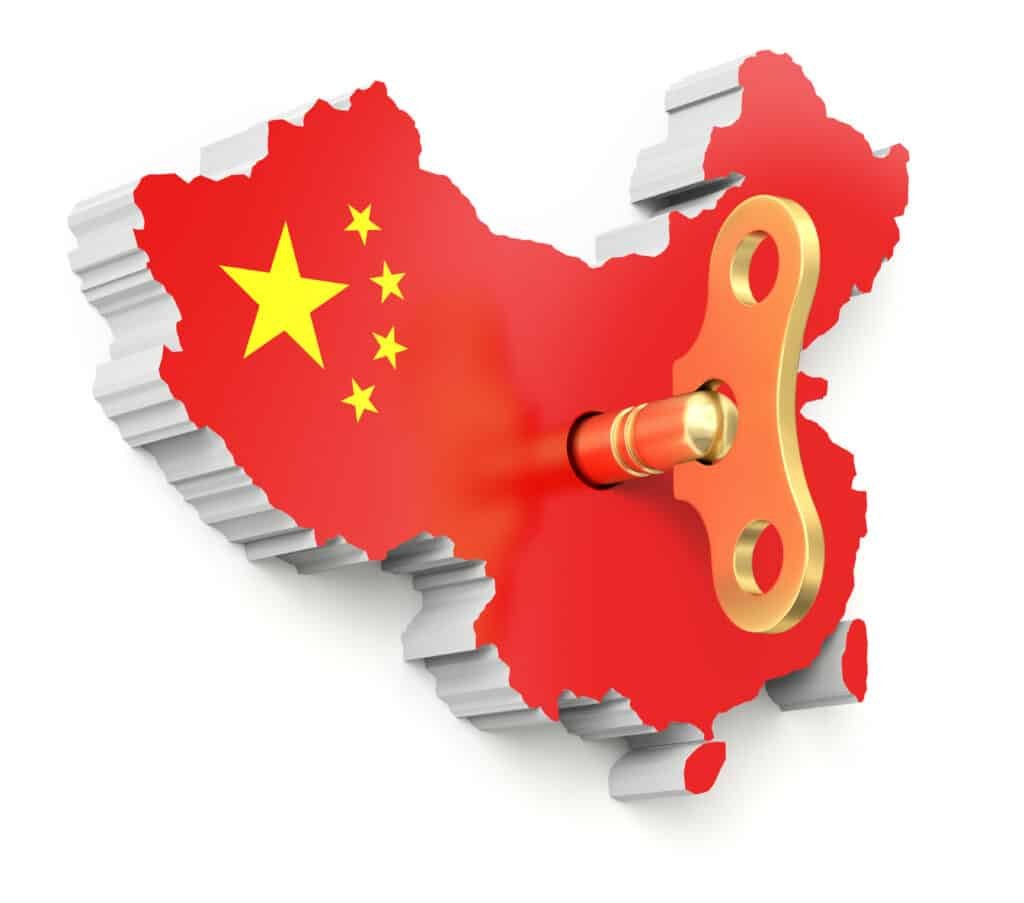
An Economic Superpower
China’s economy is massive. With over 1.4 billion citizens, China remains the most populous country on earth. China’s gross domestic product (GDP) was over $14 trillion in 2019. That is the second-largest globally and is on track to overtake the United States GDP in 2032. China’s GDP per capita is about $10,262, which means many families have some disposable income, making them great potential customers.
China’s economic prowess has been discussed and debated in many other articles, so it is not worth repeating it all here. What is clear is that China is an economic superpower, and companies would be foolish to ignore the opportunities it offers.
China’s Strategic Importance
The opportunities in China should not simply be thought of in terms of the current customer base. It also needs to be considered as a strategic space. A company that claims opportunities in China can attempt to block
Here is an example.
Imagine a car maker (called “AB Cars”) decided to expand to China. The business performs well, so they can build car dealerships all over the country. A competitor realizes AB Cars is making a lot of money in China, so they want to get into the market.
As they plan, the competitor is having trouble finding suitable locations to build car dealerships. AB Cas has already bought many of the best spots. The competitor has trouble finding experienced car salespeople because the best ones already work for AB Cars. Marketing is also not very effective because they know less about a less established brand than AB cars.
This story doesn’t mean you cannot expand to China if there are already competitors in your industry. It does mean that the sooner you get in, the easier it will be to become established. On the flip side, ignoring the Chinese market means your competitors can grow and develop without friction, which will strengthen their business in the domestic market.

China is a critical strategic battleground, both today and tomorrow. Companies without a China strategy are not planning for the long term.
Expanding into China Can Help Your Domestic Business
Depending on your industry, Chinese expansion can help your domestic business. According to China Travel Guide, the Chinese took over 150 million international trips in 2019. Chinese tourists spend billions of dollars each year buying goods and services abroad.
By establishing your brand in China, you increase the chance Chinese tourists purchase from you when traveling. For companies that sell high-end products such as jewelry, watches, and clothing, these tourists can represent a substantial source of income. Luxury goods are often heavily taxed in China, so it is less expensive to buy them overseas.
There are also 46 million Chinese people living internationally and millions more with ethnic or familial ties to China. By expanding your company to China, you may improve your relationship with Chinese consumers living in your own country.
How the Chinese Market Differs from the West
Every country has its own norms and traditions. These cultural differences are influential in various ways, but the differences between Western economies and the Chinese economy go far beyond values and attitudes. The Chinese economy is structurally different from the West in several fundamental ways. This is a vast topic, but three differences worth highlighting are consumers, the government, and the internet.

Chinese Consumers
To understand the Chinese consumer, it is necessary to understand the history of modern China and how it differs from the West. For Americans, the current economic era started after World War II. Income and wealth grew steadily since the ’50s, leading to a large and established middle class.

China has undergone a similar transformation, but the shift has taken place over 20 years, not 70. In 2000, it was estimated that 3.1% of China’s population was part of the middle class. By 2018, this grew to over 50%. Chinese companies that serve the consumer class are rarely more than 10-15 years old.
This rapid development has been noticeably uneven. First-tier cities such as Shanghai and Beijing offer amenities on par with anything seen in the West. At the same time, more rural areas are defined by a lifestyle of subsistence farming. This means the different regions of the Chinese market have very unique interests and needs.
Chinese Government
Though China has embraced a free-market economic model in recent years, the government still maintains an active role in the day-to-day economy. Policy changes can be abrupt, which means business opportunities may shift rapidly with little warning.

Many companies that exist today were once owned by the government but were since privatized. The government still has a direct role in some companies, which will influence their behavior. A poor reputation with the Chinese government could significantly limit your ability to do business in China.
When working with other companies in China, be sure to ask them about ties with the government. It will help you understand what they want or how they might behave. Companies that are partly owned by the government may have certain restrictions on what they can do. On the other hand, close connections with government agencies may provide additional business opportunities.
The government’s influence is perhaps most evident as it relates to the internet.
Chinese Internet
Internet in China is fundamentally different than the internet we use in the West. Most people have heard of China’s Great Firewall, which restricts the sites Chinese citizens access. This includes most social media platforms, including Facebook, Twitter, and Instagram; video services, including YouTube and Netflix; and almost all mainstream news sites. Overall, this means many of the most popular websites in the West are banned in China.
To highlight the impact of these differences, it is worth highlighting two particular websites. Most Westerners don’t know about them, but they are popular within China. The first is Alibaba. This e-commerce website offers a wide variety of associated sites, including T-mall, the Chinese equivalent of Amazon. Approximately 3 202 billion yuan (500 million USD) in sales occurred through T-mall in 2020. That figure has been growing at over 20% per year since 2015.
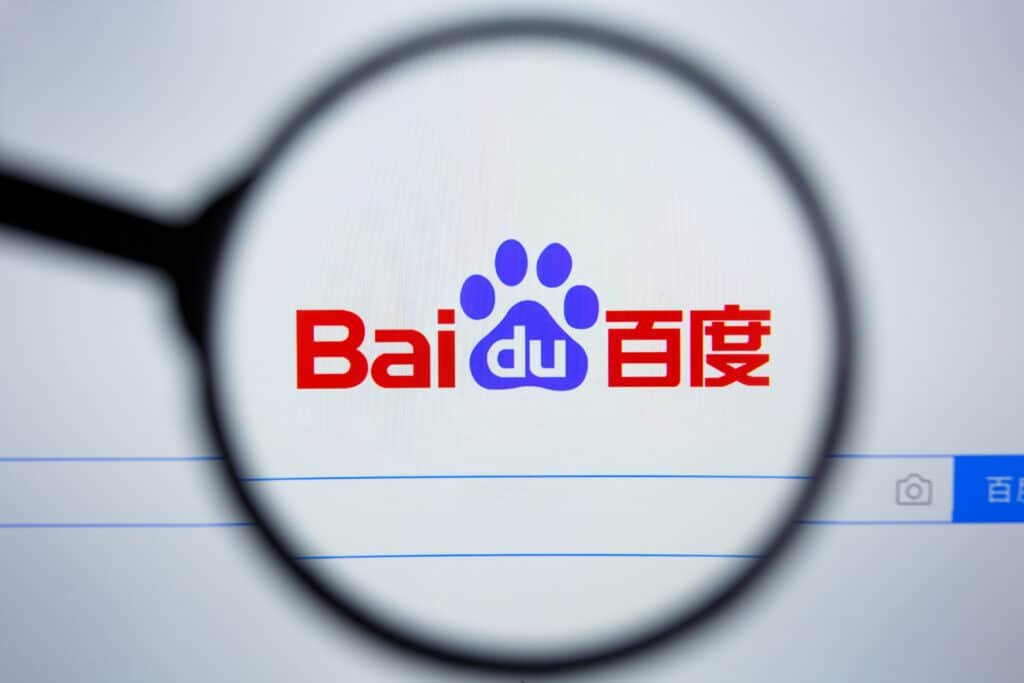
Search is another aspect of the internet where China is different from the rest of the world. Google has over 90% of the search volume worldwide but controls only 2.3% of the search volume in China. The most popular search engine is Baidu, which has some critical differences from Google. Search engine optimization (SEO) strategies that work in North America and Europe will likely not be successful in China.
To learn more about this topic, read our blog post on translating your website to Chinese.
How to Expand to China
Now that we have covered why companies are expanding to China and the background information you need to understand about the country, it is time to cover how to expand to China.
To be clear, it is impossible to provide a step-by-step guide on this subject. The path each business will take will depend on their industry and their overall business strategy. Instead, this provides guidelines that you should consider when coming up with when planning your expansion to China.
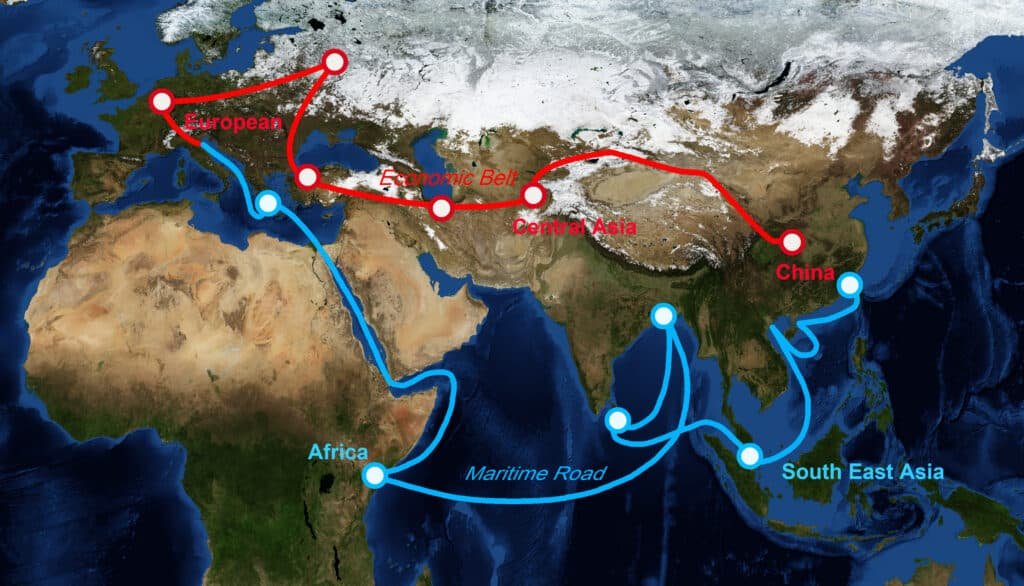
Where to Start: Have a Strategy
While China is a land filled with opportunities for foreign business, that doesn’t mean it is easy to get your business started in China. Half-hearted attempts often fail, and companies sometimes need to wait years before they begin to see a return on their investment. Precise strategic thinking is necessary to navigate this market.
-1024x604.jpg)
What are you trying to achieve by expanding into China? Do you want to sell to Chinese consumers or businesses? In urban or rural environments? Are you looking to expand your manufacturing capacity or supply chain? Do you want to recruit local talent?
If you answered “yes” to all of these questions, your strategy might be too vague. You likely need to focus on one or two goals, to begin with, to be successful. This guide focuses on companies looking to sell to Chinese customers, but many of the lessons apply to other approaches.
One of the great opportunities of the Chinese market is the possibility of a “blue ocean strategy.” A blue ocean strategy is a position where a company has an uncontested market, as opposed to a red ocean strategy where other companies compete in the same space. Since the Chinese market is still developing, many products and consumer niches are not yet claimed. Therefore, companies have the possibility of capturing a large market with minimal competition.
One of the keys to establishing a blue ocean strategy is understanding the demographics and diversity of China.
Understand Your Demographic
China is a massive country, filled with a wide range of people. This may seem obvious, but foreigners can sometimes think of the Chinese as only one uniform population. Each region has its own population demographics, income levels, cultural norms, and economy. “Expanding to China” is often too unfocused. Instead, most successful businesses target a particular region or city.

The country is formally Communist, but it does not resemble the stereotype where everyone lives on identical rations with identical incomes and wears identical clothing. China has lower, middle, upper-middle, and wealthy classes like the West. Many Chinese people – especially those with higher incomes – buy many brands we would recognize.
While China is more ethnically homogenous than most Western countries, there is still plenty of diversity. Targeting “Chinese people” is too unfocused. Instead, target specific demographics or groups within a particular region.
Partnering with Chinese Businesses
Once, all foreign businesses needed to pair with a Chinese company to operate in China. This is no longer universally the case, but the practice is still common. The structure of this relationship takes different forms depending on the industry or the needs of the companies involved.
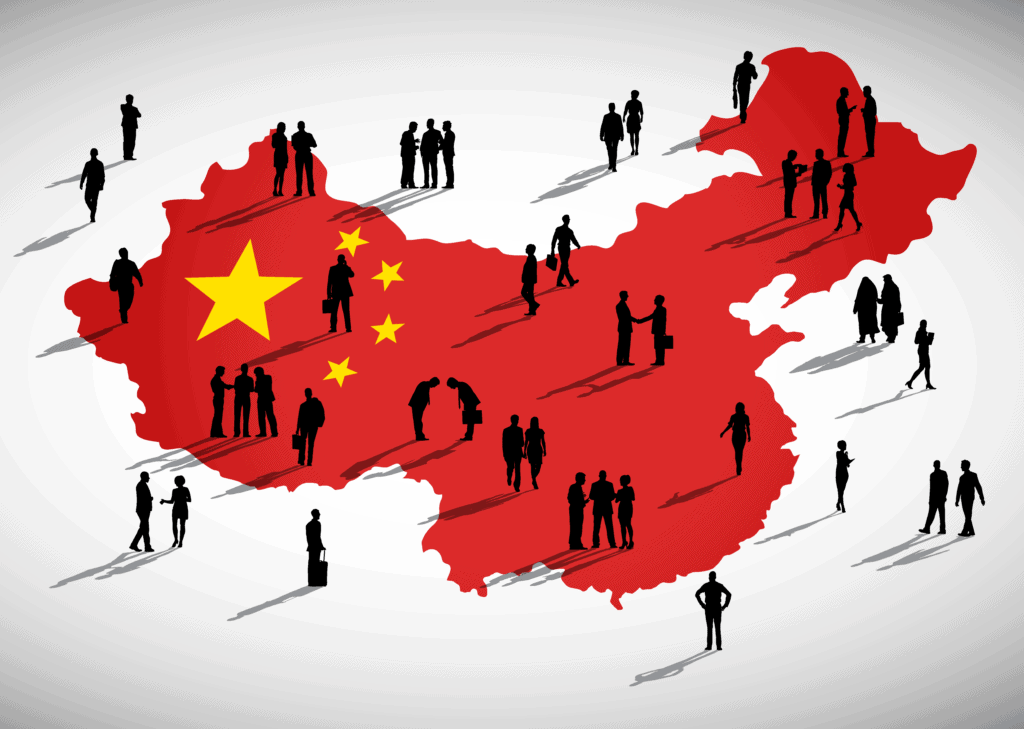
Chinese companies can assist with many aspects of doing business in China. Navigating the legal and regulatory process in China is complicated, so it is helpful to work with a Chinese company with experience in the field. China also has different sales channels than North America or Europe, so it is beneficial to get advice on sales strategy. Working with a Chinese Company will also help you network, so you can build your relationships with representatives of other businesses, agencies, or organizations.
What do Chinese businesses get out of these arrangements? First, they may want help getting access to your domestic market. Many Chinese enterprises have struggled to get a foothold in the West. Tons of manufactured goods from China are exported to North America and Europe. These are primarily sold by non-Chinese companies. Chinese companies may want help breaking into the Western market themselves.
Related to expanding to the West, Chinese companies may want to be associated with the West. European and American brands are often seen as more stylish or better quality by Chinese consumers. By partnering with Western companies or selling in Western markets, a Chinese business can increase its prestige in the domestic market.
Chinese businesses are also interested in learning from their foreign counterparts. While China offers high-caliber education in technical topics, local universities are not as strong on international business. Partnering with American or European companies, they can learn skills and strategies necessary to grow their businesses.
Chinese Translation & Localization Services
Every small or medium-sized business planning to expand to China will need to invest in Chinese translation services. While English is the “language of business,” most Chinese people understand only limited English. Not only that, many legal documents must be in Chinese.
Some companies may attempt to avoid this requirement by passing translation work to a handful of Chinese-speaking employees. This is a mistake. The translation is challenging and time-consuming work, particularly for amateurs. Save time, money, and stress by working with a professional translation service.
Standard documents and content that needs to be translated includes:
Legal and regulatory translation: To do business in China, you must complete a significant amount of legal and regulatory documentation. All your paperwork must be done correctly, as any mistakes could lead to delays or restrictions. It is critical to work with experts that understand the technical issues involved.
Translation and localization of marketing materials: You need to have appropriate marketing content if you are looking to sell to Chinese consumers. Localization is the process of translating both the language and the deeper meaning of a piece of media. Skilled marketers know that an advertisement, video, or article’s symbols, tone, and visual language are critical for their effectiveness. Localization allows you to ensure your message fits your intended audience.
Chinese employee training material: Any employees based in China should be provided with Chinese training materials and legal paperwork. Having Chinese documentation shows that you value your new employees, which will increase their commitment to your company.
DingTech Business Consulting and Professional Localization Services

DingTech is your ultimate resource for Chinese translation and business consulting. We have helped companies of all sizes expand to China for over 13 years. We have experience working with a variety of brands, ranging from luxury goods retailers to industrial manufacturing. When you work with DingTech, you can be confident that you will receive the best possible service to meet your business goals.
Have questions about expanding to China? Contact us for a free consultation.
Was this article useful to you?
0 / 5. 0
很抱歉,这篇文章对您没有用!
让我们改善这篇文章!
告诉我们我们如何改善这篇文章?

